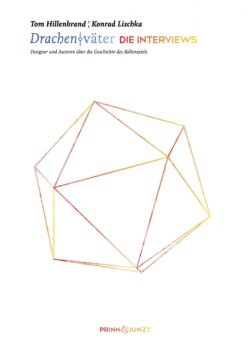Читать книгу Drachenväter: Die Interviews - Konrad Lischka - Страница 75
На сайте Литреса книга снята с продажи.
In hindsight, would it have been possible to open-source D&D in such a way that there would have been a better overall quality [in] d20 products [i.e. more control over the whole thing]?
ОглавлениеIn a word: no.
At length: Wizards did not have the time or budget to run a review and approval process for third party D&D books. It would not have been possible to get that team funded by submissions from third parties. So there was no mechanical way to do it that would make sense. We could have offered a select license to certain third party publishers that we trusted, and have done an approval process inside the brand team, but the amount of such product we could have processed would have been miniscule. We might have doubled the output of third edition products by trying to do it ourselves.
Had we tried to do a targeted license, we would have been dealing with just a handful of companies, all of whom had their own lines and their own interest in building up their own brands and not adding value to ours. It’s unlikely that those companies would have taken the up-front risk to make anything other than very basic, very closeto-core products; the safest of the safe bets. So even if we'd done targeted licenses, we'd have just ended up with products that competed head to head with the core third edition books. That made no sense.
On top of all that, there was a rampant layer of paranoia in the industry at the time. You have to remember that by the late nineties, the RPG segment was in total free-fall. None of the companies in it were successful. All were running at close to break-even (or losing money). Many were dead or dying – unable to pay to produce new books in lines that had apparently lost their audiences. Wizards had unified CCGs and RPGs and had total control of the market, and a lot of people were worried that Wizards' next move would be to eliminate all its competition and drive everyone else out of the RPG segment. So the idea that the other RPG publishers would voluntarily agree to work within a framework where they would have to pay up-front to develop games, then submit them for approval, and risk Wizards simply not approving that work was not going to make any headway at all.
The downside of the OGL was that a lot of people made a lot of crappy products. So what? Every vibrant creative form has a lot of crappy products – novels, music, movies, you name it. Crap comes with volume – it’s Sturgeon’s Law. What the OGL did was unleash a lot of really, really great products, products that in many cases provided the revenue various publishers needed to save themselves from bankruptcy. Some of those companies found success over the long term. Some burned bright and burned out. But customers got an explosion of new, interesting games to play that they would never had gotten any other way. Most customers are savvy and didn't buy most of the crap. So the players weren't really hurt in any way by the amount of bad d20 products that got produced. The people who were hurt were retailers and distributors, but the hurt they took from d20 was DWARFED by the riches they earned at the exact same time from „Pokemon“ and „Yu-Gi-Oh!“ – by maybe an order of 10x.
Reducing the risk to the publishers to zero is what made the OGL work. Every restriction Wizards has added since the start of the project hasn't made it work better, it's made it work worse. Now with the GSL, they have almost no third party support, and I'd argue that's a big problem for them and one reason fourth edition didn't succeed.
